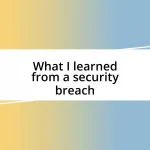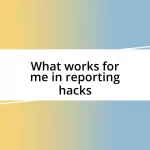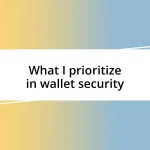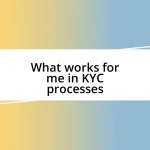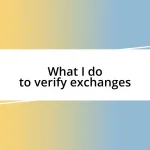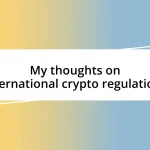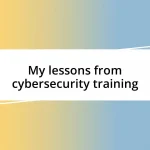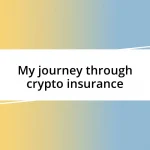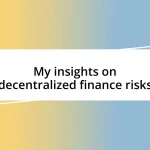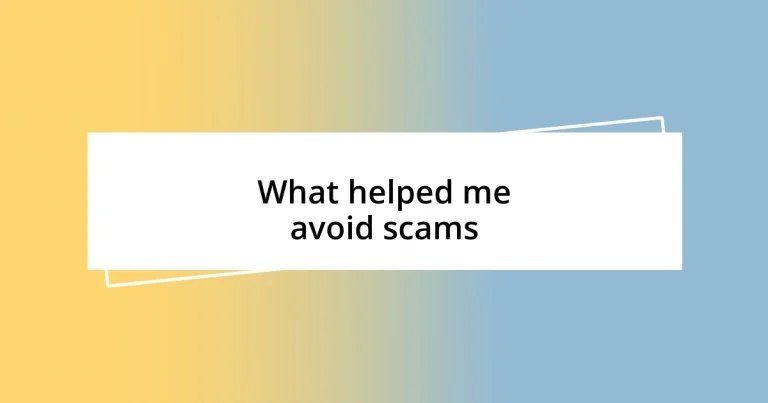Key takeaways:
- Recognizing common scam tactics, such as urgency, façade of legitimacy, and emotional manipulation, is crucial for avoiding scams.
- Conducting thorough research and verifying details before transactions can prevent falling victim to scams and save money.
- Building a support network and sharing experiences with trusted individuals enhances awareness of scams and provides valuable insights.
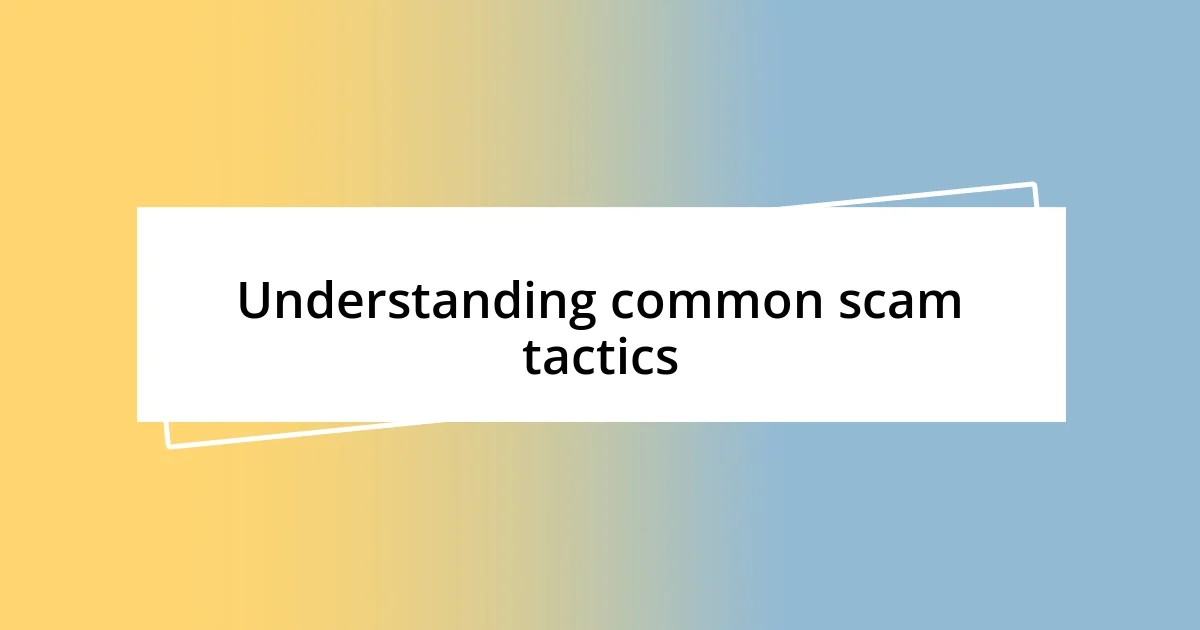
Understanding common scam tactics
Scammers often rely on urgency to prompt quick reactions. I remember receiving a phone call that claimed my bank account was compromised, creating a wave of panic in me. It’s fascinating how they can manipulate emotions; I nearly fell for it until I took a moment to breathe and think critically. Does the rush sound familiar to you?
Another common tactic is creating a façade of legitimacy. For instance, there was a time when I got an email from what appeared to be a trusted source, complete with professional logos and language. The initial trust it instilled made the scam even harder to spot. Have you ever found yourself questioning the genuineness of something that seemed official?
Finally, some scams prey on our empathy, using heart-wrenching stories. I once encountered a charity request that tugged at my heartstrings. It took me a few moments to realize that genuine organizations usually provide clear information and transparency. Have you ever experienced that moment of hesitation before donating? It’s essential to stay vigilant and check the facts, even when our emotions are involved.
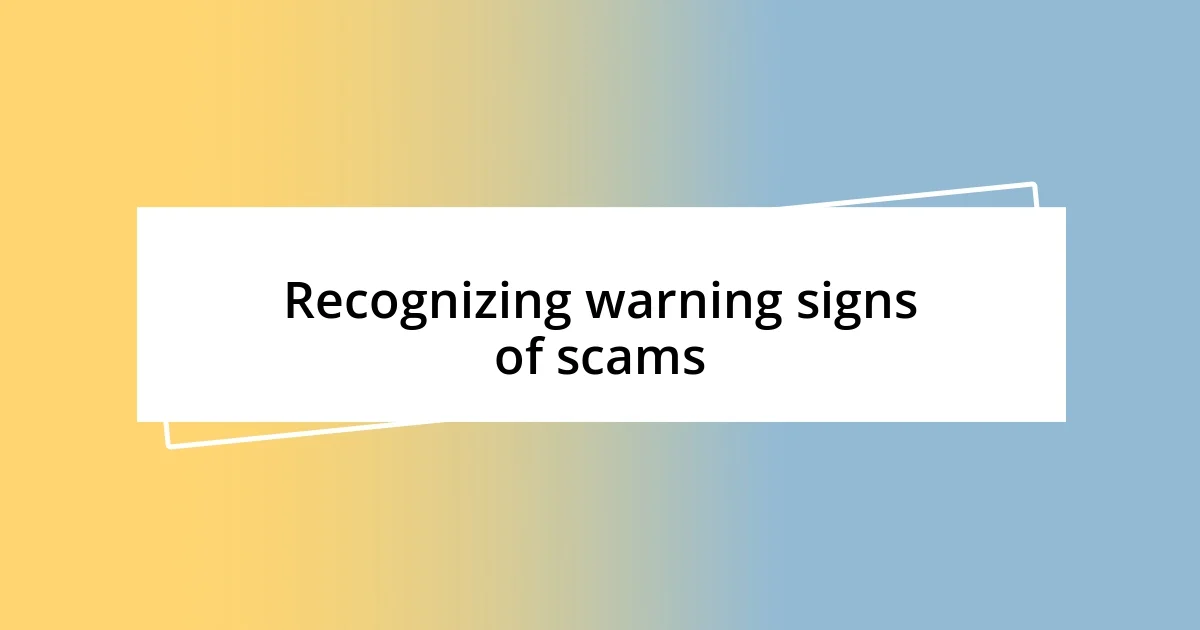
Recognizing warning signs of scams
Recognizing the warning signs of scams often starts with trusting your instincts. I vividly remember a moment when I received an unsolicited message claiming I had won a significant amount of money. It felt too good to be true, and something inside me said to dig deeper before celebrating. My experiences taught me that if something seems excessively enticing, it often deserves a second look. Trusting your gut can be your first line of defense.
Here are some red flags that can help you recognize potential scams:
– Unsolicited Communication: Unexpected calls, texts, or emails from unknown sources.
– Requests for Personal Information: Legitimate companies rarely ask for sensitive data through insecure channels.
– Poor Grammar and Spelling: Many scams come from overseas, leading to awkward language that raises suspicion.
– Threatening Language: Scammers often employ intimidation tactics to pressure you into compliance.
– Too Good to Be True Offers: A common trap where lucrative offers are made without any effort on your part.
Each of these signs has shown up in my own encounters, serving as a reminder that a cautious approach can often save us from an uncomfortable situation.
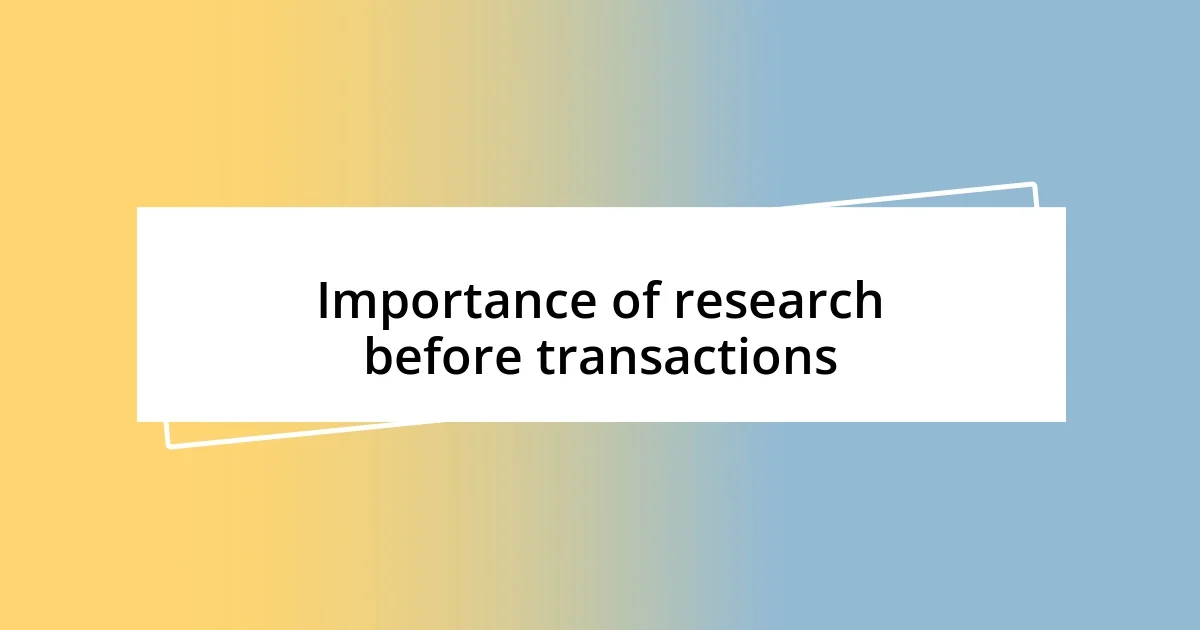
Importance of research before transactions
Before making any transaction, doing thorough research can truly be a game-changer. I recall a specific instance where I was about to purchase an expensive item online. Everything looked legitimate, but I decided to type the seller’s name into a search engine first. To my surprise, I found several negative reviews warning potential buyers of previous scams. That quick decision to research saved me a significant amount of money and heartache.
Research isn’t just about checking reviews; it also involves verifying details. I once encountered a website offering a fantastic deal on a new gadget. However, a few moments on the internet revealed that the URL was slightly off from the official store. When I took a step back and examined the details, I realized that it was a clever imitation designed to lure unsuspecting buyers. Have you ever noticed how just one wrong letter can make a world of difference?
While it might seem tedious, effective research can empower you in every transaction. I now set aside time to look into unfamiliar sellers, especially when my finances are at stake. Each of these small steps has contributed to my growing confidence in navigating potential pitfalls. Have you developed a personal strategy for staying safe while shopping?
| Research Method | Benefit |
|---|---|
| Online Reviews | Helps identify legitimate sellers and their reputations. |
| Domain Verification | Ensures the website is authentic and not a scam imitation. |
| Social Media Feedback | Gains insights from customer experiences and recommendations. |
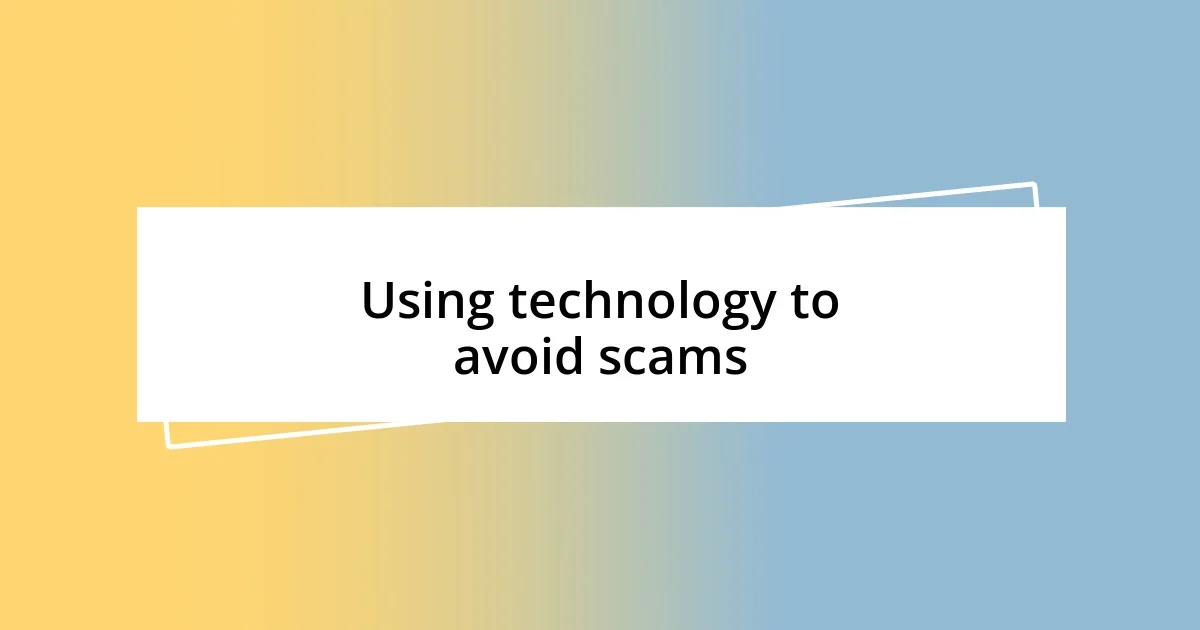
Using technology to avoid scams
In today’s digital landscape, technology plays a crucial role in steering clear of scams. I remember the last time I received an email asking me to click a link to verify my account. Something didn’t feel right, so I pulled out my smartphone to check the sender’s address with a built-in spam checker app. It flagged the email as potentially dangerous, confirming my instincts. Those tools can be lifesavers; they provide an extra layer of security that I can quickly access anytime.
I’ve also started using two-factor authentication on my accounts, which has significantly boosted my online security. The extra step of receiving a code on my phone might take a moment, but it has given me immense peace of mind. Have you ever experienced that sense of vulnerability when entering your personal information? The more layers of protection I apply, the more confidence I feel in my online activities. It’s fascinating how a simple technological advance can equip me to navigate the digital world more safely.
Even social media platforms have enhanced features to help users flag suspicious content or report scams. I recall a time when a friend shared a post about winning a free vacation; it looked appealing. However, the comments section was filled with warnings from people who had been scammed. I urged my friend to investigate further before engaging with it. Online communities can be powerful allies, offering real-time insights that help us avoid falling into traps. How often do you rely on your network’s wisdom when something seems off?
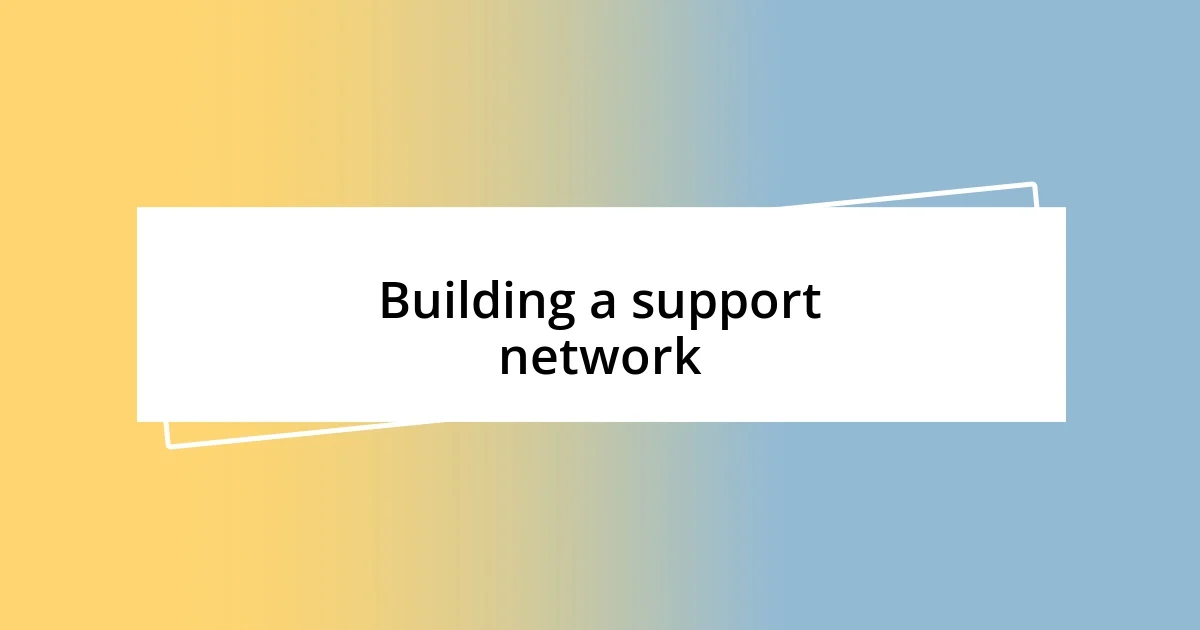
Building a support network
Building a support network has been pivotal for me in staying vigilant against scams. I recall reaching out to some friends after I encountered a suspicious investment opportunity online. They not only shared their experiences but also opened my eyes to red flags I hadn’t considered. Having that immediate feedback not only helped me avoid a potential loss but reinforced how invaluable a trusted circle can be.
Another aspect of my support network involves online communities where members share their scam stories. I once read about a friend of a friend who fell victim to a fake charity. The horrifying reality of this scam moved me deeply and motivated me to take a proactive approach. I started contributing to discussions, sharing precautionary tips, and encouraging others to stay informed. What about you? Have you found support communities that help bolster your defenses against scams?
Building connections with people who prioritize safety has ultimately made me feel empowered. Just the other day, I chatted with a colleague who mentioned a new scam targeting remote workers. Listening to her insights, I realized how staying engaged with my network not only keeps me updated but also adds layers of protection. How much more secure do you feel when you know you have people looking out for you?
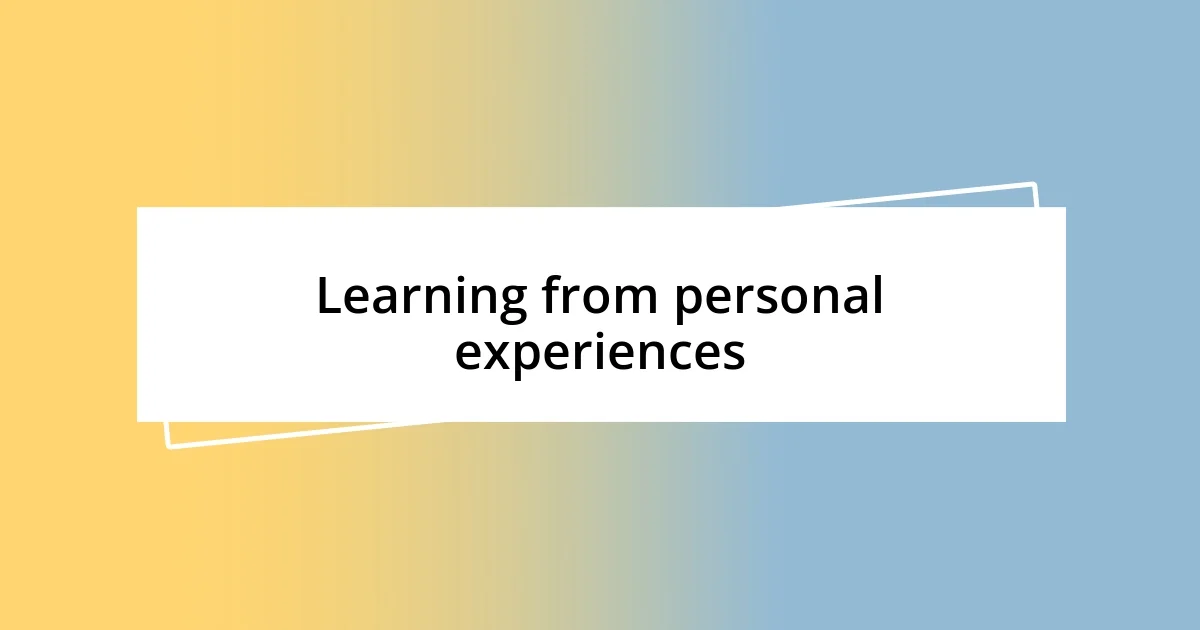
Learning from personal experiences
Reflecting on my personal experiences has shaped how I navigate the scam landscape. A few years back, I received what seemed like a legitimate job offer filled with impressive promises. As I read through the details, unease crept in. Trusting my instincts, I decided to research the company instead of jumping at the chance. The result? I discovered that others had reported the same offer as a scam, reinforcing my belief that due diligence is paramount. Have you ever felt that subtle twinge of doubt that saved you from a questionable situation?
There’s a particular incident that stands out in my memory. I had a close call with what I thought was a genuine online shopping site. It offered fantastic deals, but something about the website’s layout felt off. Instead of proceeding with my purchase, I checked online reviews. To my dismay, I found a slew of complaints from previous customers claiming it was a front for scammers. That moment taught me the power of patience and a little investigative work. Have you ever hesitated before making a purchase, and later felt grateful you did?
Learning from past experiences goes beyond just avoiding scams; it fosters a mindset of caution and curiosity. An instance where I helped a family member avoid a phishing scam comes to mind. After receiving an email that seemed to be from her bank, she panicked and nearly clicked through. Encouraging her to pause and critically evaluate the situation not only protected her but strengthened our trust in communicating about online safety. How do your experiences shape your decision-making process today?
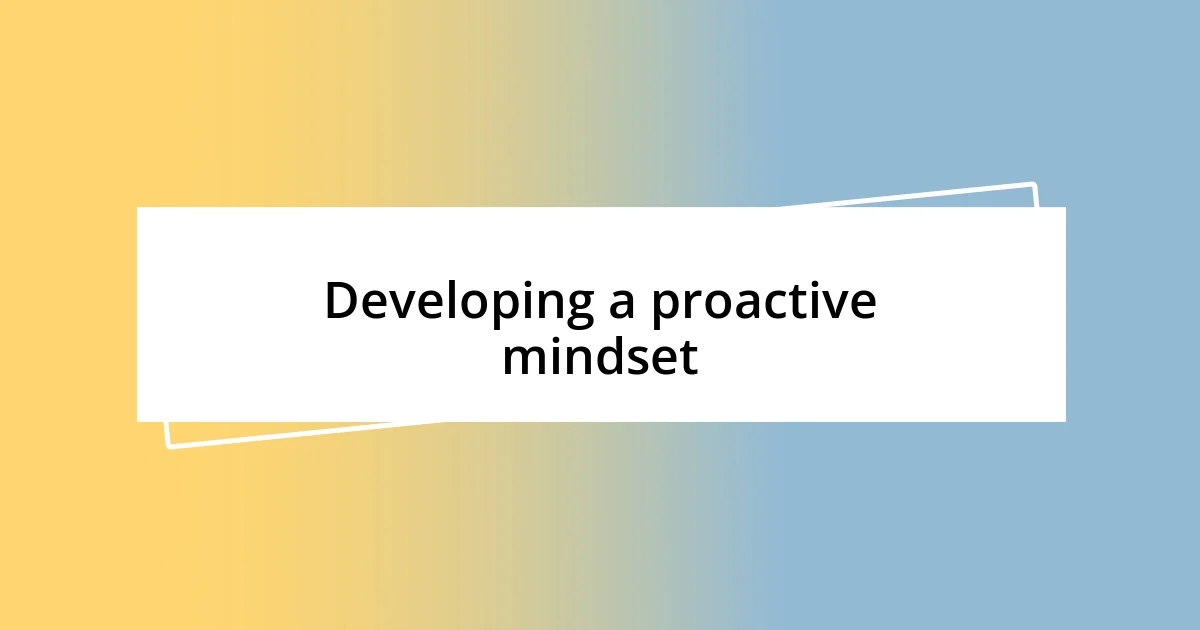
Developing a proactive mindset
Developing a proactive mindset means being ahead of the game when it comes to recognizing potential scams. I remember attending a seminar on online safety, where the speaker emphasized the importance of a critical eye. One particular tip that resonated with me was to treat unfamiliar messages with suspicion, no matter how appealing they seemed. Are you giving yourself the same space to question what lands in your inbox?
I also found myself in a surprisingly empowering situation when I decided to follow credible sources for scam alerts on social media. One day, I saw a post about a prevalent scam targeting seniors, and instinctively, I thought of my grandparents. Sharing that information with them not only sparked a valuable discussion but also emphasized the importance of staying informed. Have you connected with trusted sources that help keep you alert?
In cultivating this proactive mindset, I’ve learned that asking questions is crucial. Not long ago, I received a call that raised my hackles—an offer that felt too good to be true. Instead of brushing it off, I engaged the caller with my own inquiries. Their hesitance revealed everything I needed to know; it was a scam. How often do you challenge the status quo when something doesn’t add up? It’s those moments of curiosity that build resilience against deception.
